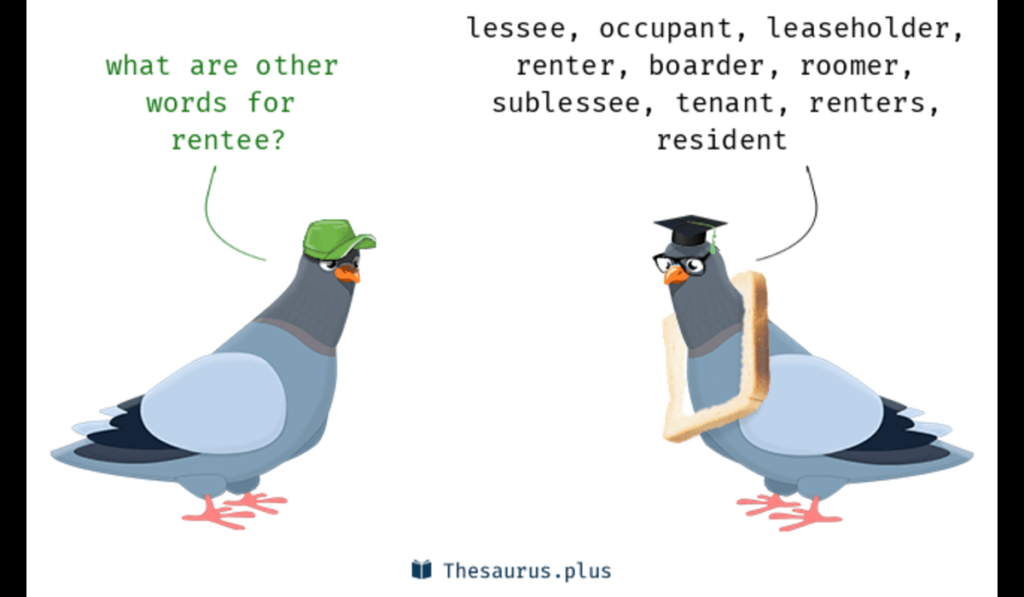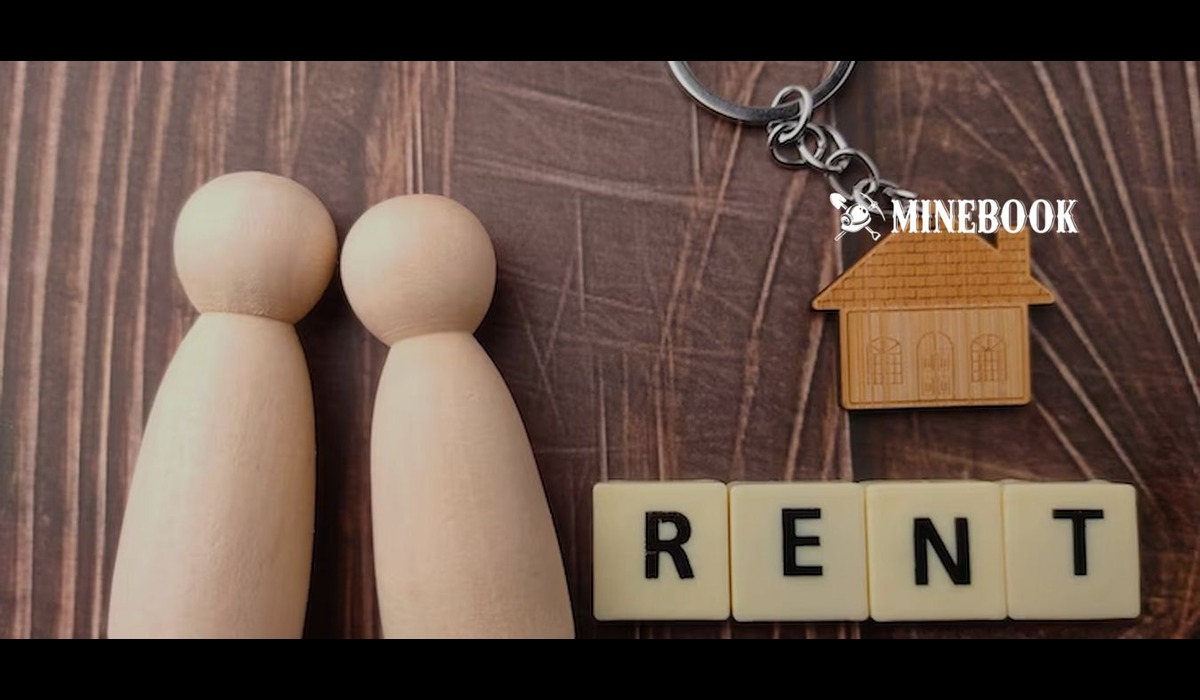Introduction to Renting
Welcome, rentees Whether you’re a first-time renter or a seasoned pro, this ultimate guide is here to equip you with everything you need to know about the exciting world of renting. From understanding rental agreements and contracts to negotiating favorable terms, we’ve got your back!
Renting has become increasingly popular in recent years for various reasons. Not only does it provide flexibility and freedom, but it also saves you from the responsibilities of homeownership. So if you’re ready to explore the countless benefits of being a rentee rather than an owner, keep reading!
But before diving into the nitty-gritty details, let’s take a moment to understand why renting can be a smart choice compared to owning. By weighing the advantages and considering key factors when choosing your dream rental property, you’ll be well on your way towards finding that perfect place that feels like home.
So sit back, relax, and get ready for some valuable insights on becoming an expert rentee. Let’s embark on this enlightening journey together!
Benefits of Renting Compared to Owning
When it comes to finding a place to call home, the decision between renting and owning is one that many individuals face. While both options have their merits, there are several distinct advantages to choosing the rental route.
Flexibility is perhaps one of the biggest benefits of renting. Unlike homeownership, which typically requires a long-term commitment, renting allows for more freedom and flexibility. Whether you’re unsure about your future plans or simply enjoy having the ability to pick up and move when necessary, renting provides the flexibility that ownership often lacks.
Another advantage of renting is that it can be more cost-effective in certain situations. While renters do have monthly rent payments, they are generally lower than mortgage payments for comparable properties. Additionally, renters typically don’t have to worry about expenses such as property taxes or costly repairs and maintenance.
Renting also offers a level of convenience that homeownership may not provide. When something breaks or needs repair in a rental property, it’s typically the landlord’s responsibility rather than yours as the tenant. This can save you time and money on maintenance tasks.
Furthermore, living in a rental property often grants access to desirable amenities such as swimming pools, gyms, or community spaces without any additional costs or responsibilities on your end. These amenities can enhance your overall quality of life while still allowing you to maintain financial stability.
Additionally, renting gives you an opportunity to sample various neighborhoods before making a long-term commitment if you’re considering settling down in a new area but aren’t quite sure if it’s right for you yet.
Another benefit worth mentioning is that choosing renting over owning at this stage in your life doesn’t mean forever – especially with today’s changing markets! Renting now could actually help set yourself up better for buying later! It can give time and space needed so when ready financially (and emotionally!) – purchasing becomes easier!
In conclusion… Wait, I’m not supposed to conclude! Well, let’s just say that renting offers many advantages
Factors to Consider When Choosing a Rental Property
Location, location, location! This phrase may be overused, but it holds true when it comes to choosing a rental property. The first factor you should consider is the location. Is it close to your workplace or school? Are there amenities nearby such as grocery stores, parks, and restaurants?
Next, think about the size and layout of the rental property. Will it comfortably accommodate your needs? Do you need multiple bedrooms or a spacious living area? Consider your lifestyle and any future plans that might require additional space.
Budget plays a crucial role in choosing a rental property. Set a realistic budget that includes not just rent but also utilities and other expenses. Make sure you can afford the monthly payments without sacrificing essential needs.
Safety is another important factor to consider. Research crime rates in the area and check if there are security measures implemented in the building or neighborhood.
Don’t forget about transportation options available near the rental property. Is there easy access to public transportation or major highways? This will greatly impact your daily commute and convenience.
Take into account any specific requirements or preferences you have regarding pets, smoking policies, parking availability, or laundry facilities.
By carefully considering these factors when choosing a rental property, you can ensure that you find one that meets your needs and enhances your overall renting experience.
Understanding Rental Agreements and Contracts
When it comes to renting a property, one of the most crucial aspects is understanding the rental agreement or contract. This legal document outlines the rights and responsibilities of both the renter (you) and the landlord. It is essential to thoroughly read and comprehend this agreement before signing anything.
Pay close attention to the terms and conditions mentioned in the contract. It will outline important details such as lease duration, monthly rent amount, security deposit requirements, late payment penalties, pet policies, maintenance responsibilities, etc.
Next, take note of any additional clauses that may be included in the contract. These clauses can cover various topics like subletting rules, termination procedures if either party wants to end the lease early or renewal options after its expiration.
It’s vital to clarify any doubts you have regarding specific provisions with your landlord before signing on the dotted line. If there are areas that seem unclear or unreasonable within the agreement, don’t hesitate to ask for clarification or request modifications.
Keep in mind that a rental agreement is legally binding once it’s signed by all parties involved. Therefore it’s crucial not to rush through reading this document — take your time! By fully understanding your rights and obligations outlined in this contract upfront ensures a smoother rental experience for everyone involved.
Remember: knowledge is power when entering into a rental agreement!
Tips for Negotiating Rent and Terms
When it comes to renting a property, negotiating rent and terms can play a crucial role in ensuring you get the best deal possible. Here are some tips to help you navigate this process:
1. Do your research: Before entering into negotiations, research the rental market in your area. Find out what similar properties are renting for to have an idea of what is reasonable.
2. Highlight your strengths: When discussing rent with the landlord or property manager, emphasize any positive attributes that make you an ideal tenant. This could include good credit history, stable employment, or excellent references.
3. Be prepared to compromise: Negotiations require give and take from both parties involved. Be open to compromising on certain terms while still advocating for what is important to you.
4. Timing is key: Consider negotiating rent and terms during off-peak seasons when landlords may be more willing to negotiate due to lower demand.
5. Put everything in writing: Once an agreement has been reached, ensure all negotiated changes are documented in writing before signing any rental agreements or contracts.
Remember, effective negotiation skills can help you secure a favorable rental agreement that meets your needs while maintaining a positive relationship with the landlord or property manager.

What to Do in Case of Disputes with Landlord
Rentee dealing with disputes can be an unfortunate part of the rental experience. However, it’s important to know your rights and take appropriate action when conflicts arise with your landlord. Here are some steps you can take to resolve issues effectively:
1. Communicate Clearly: The first step is to address the problem directly with your landlord. Be calm and assertive, explaining the issue clearly and providing any necessary documentation or evidence.
2. Review Your Lease Agreement: Familiarize yourself with the terms outlined in your lease agreement. This will help you understand what responsibilities fall on both parties and can serve as a reference point during discussions.
3. Document Everything: Keep detailed records of all interactions related to the dispute, including dates, times, conversations, emails, or any other relevant communication.
4. Seek Mediation: If direct communication doesn’t lead to a resolution, consider involving a neutral third party mediator who can help facilitate negotiations between you and your landlord.
5. Know Local Laws: Research local laws regarding tenant rights and protections in case legal action becomes necessary.
Remember that patience is key during this process as resolving disputes may take time. By staying proactive and informed about your rights as a rentee, you’ll be better prepared for handling any challenges that come your way.
Maintenance and Repair Responsibilities
As a rentee, it’s important to understand the maintenance and repair responsibilities that come with renting a property. While the landlord is typically responsible for major repairs, such as fixing structural issues or replacing appliances, there are certain tasks that fall under your jurisdiction.
You should be proactive in reporting any maintenance issues to your landlord promptly. Whether it’s a leaky faucet or a broken light fixture, notifying your landlord early can prevent further damage and ensure timely repairs. Keep in mind that failing to report damages may result in you being held liable for the costs.
Additionally, routine maintenance tasks like changing light bulbs, cleaning air filters, and maintaining cleanliness should be handled by the rentee. It’s essential to keep the rental property clean and tidy throughout your tenancy.
Furthermore, when it comes to minor repairs that don’t require professional assistance but are not covered explicitly in your rental agreement, you may have some discretion on whether to handle them yourself or inform the landlord. However, always consult with your landlord before attempting any repairs unless specified otherwise in your contract.
Remember that proper communication between you and your landlord is crucial when rentee dealing with maintenance issues. Ensure all requests are made in writing so there is documentation of the problem and subsequent actions taken by both parties.
While landlords typically bear most responsibility for major repairs on rental properties; as a conscientious rentee; prompt reporting of damages; performing routine maintenance tasks; proper communication with landlords regarding minor repairs will help maintain an amicable relationship during your tenancy period.
Tips for Saving Money as a Renter
1. Set a Budget: Before you start searching for rental properties, determine how much you can afford to spend on rent each month. This will help you narrow down your options and avoid overspending.
2. Choose an Affordable Location: Consider renting in areas where the cost of living is lower. Look for neighborhoods that offer affordable rents without compromising on safety or convenience.
3. Save on Utilities: Take steps to reduce your utility bills by being mindful of energy usage. Turn off lights when not in use, unplug electronics, and consider using energy-efficient appliances.
4. Split Costs with Roommates: If possible, consider sharing the rental expenses with roommates. This can significantly reduce your monthly costs and allow you to save more money.
5. Negotiate Rent: Don’t be afraid to negotiate rent with landlords or property managers, especially if you have good credit or are willing to sign a longer lease term.
6. Opt for Long-Term Leases: Many landlords offer discounts for tenants who commit to longer lease terms. Consider signing a longer lease if it aligns with your plans and helps you save money in the long run.
7. DIY Maintenance: Learn basic maintenance skills such as fixing minor plumbing issues or painting walls yourself instead of hiring professionals every time something needs attention.
8. Seek Renters Insurance: While it may seem like an additional expense upfront, renters insurance can protect your belongings from theft or damage at a relatively low cost.
9.
Cut Unnecessary Expenses: Identify non-essential expenses that can be reduced or eliminated altogether – this could include eating out less frequently, canceling unused subscriptions, or finding cheaper alternatives for entertainment activities.
10.
Take Advantage of Amenities Included In Your Rental : If your rental property offers amenities such as gym access or laundry facilities included in the rent, make sure to take full advantage of these offerings rather than paying extra elsewhere.
By implementing these money-saving tips, you can make the most of your rental
Making the Most out of Your Rental Experience
Making the most out of your rental experience is all about creating a space that truly feels like home. Here are some tips to help you make the most of your rental:
1. Personalize Your Space: Even though you may not own your rental property, it doesn’t mean you can’t add personal touches to make it feel like yours. Hang up artwork, decorate with plants, or invest in cozy furniture and textiles that reflect your style.
2. Create a Functional Layout: Take some time to consider the best layout for your space. Arrange furniture in a way that maximizes functionality and flow. This will not only make daily tasks easier but also create an inviting atmosphere for guests.
3. Build Good Relationships: Building positive relationships with both your landlord and neighbors can go a long way in enhancing your rental experience. Be respectful, communicate effectively, and address any concerns promptly.
4. Stay Organized: Keeping things organized will help you maintain a clutter-free environment and save time searching for items when needed. Invest in storage solutions such as bins or shelving units to keep everything tidy.
5. Explore Your Surroundings: Take advantage of the location of your rental property by exploring the surrounding area. Research nearby parks, restaurants, shops, and entertainment options so you can fully enjoy what’s available to you.
Remember, even though renting may be temporary, there’s no reason why you shouldn’t create a comfortable and enjoyable living space during this time!
Conclusion
Renting a property can be an excellent option for many individuals and families, providing flexibility, affordability, and convenience. Throughout this guide, we have explored the benefits of renting compared to owning a home, the factors to consider when choosing a rental property, understanding rental agreements and contracts, tips for negotiating rent and terms, what to do in case of disputes with your landlord, maintenance and repair responsibilities as a renter, money-saving tips while renting, and making the most out of your rental experience.
Rentee considering these key aspects of being a rentee and following the guidelines provided in this ultimate guide for renters like yourself can help ensure that you make informed decisions throughout every step of the process. Remember to thoroughly research potential properties before signing any agreements or contracts. Take advantage of negotiation opportunities to secure better terms that suit your needs. Be proactive in maintaining the property so that it remains a comfortable living space.
Furthermore, don’t forget about saving money as much as possible by exploring cost-effective options such as energy-efficient appliances or sharing expenses with roommates. Lastly but importantly enjoy your time as a rentee. Make sure to personalize your living space within the constraints allowed by your lease agreement.
At times challenges may arise during your tenancy; however having an understanding of how to handle disputes professionally will allow both parties involved (you and your landlord) reach amicable solutions efficiently.
Remember to always strive for open communication with your landlord or property manager if issues arise – clear communication is often key in resolving conflicts quickly!
This rentee comprehensive guide at hand tips on navigating through various stages during tenancy should equip you with necessary knowledge helping make renting an enjoyable experience!
So go ahead embrace all that being a Renter has to offer – start exploring new possibilities today!




